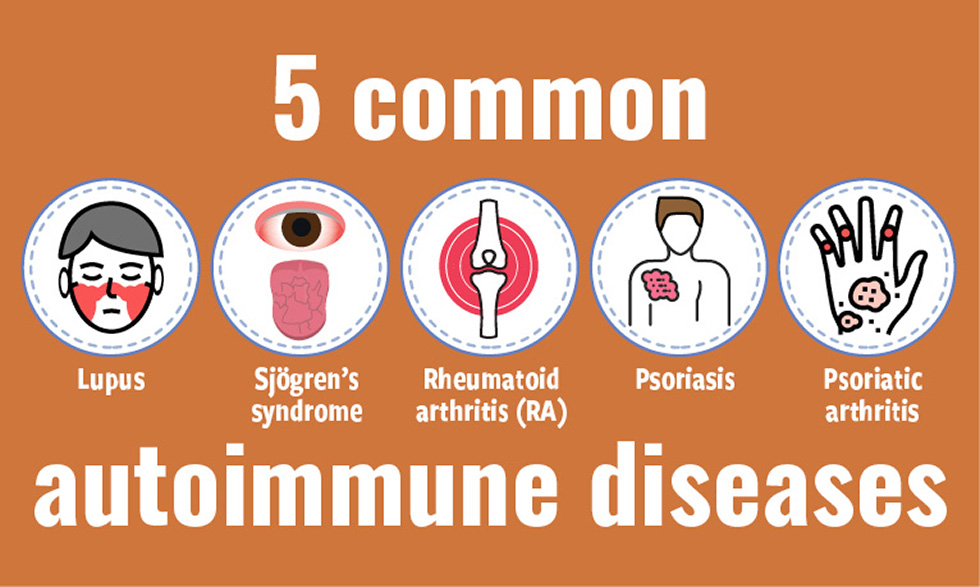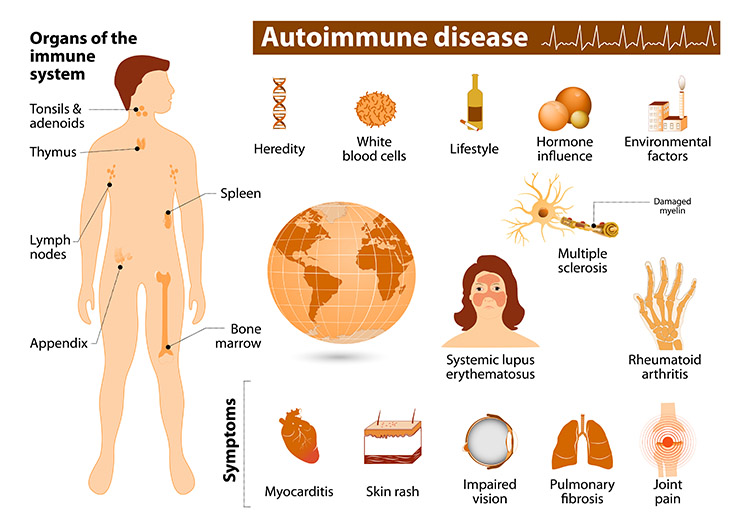Autoimmune diseases happen when the body’s defense system attacks itself. Normally, the immune system protects us from germs and infections. But in autoimmune diseases, it mistakes healthy parts as enemies. This causes many problems inside the body.

If you or someone you know feels sick for a long time without a clear reason, it might be an autoimmune disease. Knowing the symptoms can help find help early.
Looking for the best? Start with our top picks for Best Resistance Bands for Seniors to Boost Strength and Mobility.
What Are Autoimmune Diseases?
Autoimmune diseases are many. They affect different parts of the body. Some common ones are rheumatoid arthritis, lupus, and type 1 diabetes. Each disease has its own signs, but some symptoms are common.
These diseases can last a long time. Sometimes, symptoms come and go. Doctors call this “flare-ups” and “remission.” It is important to watch symptoms carefully.
Our complete guide to The Importance of Regular Health Checkups for Healthy Aging is right here.
Common Symptoms of Autoimmune Diseases

Many autoimmune diseases share similar symptoms. These signs may appear slowly or suddenly. They can change over time. Here are the most common symptoms:
- Fatigue: Feeling very tired even after rest.
- Fever: Mild or low fever without infection.
- Swelling: Joints or body parts may swell or hurt.
- Rashes: Skin may get red or itchy.
- Muscle pain: Soreness or weakness in muscles.
- Joint pain: Pain and stiffness in joints.
- Hair loss: Hair may fall out in patches.
- Digestive problems: Stomach pain, diarrhea, or constipation.
- Numbness or tingling: In hands or feet.
- Swollen glands: Lymph nodes may be tender or enlarged.
See our expert reviews of the best Amazon Brain Health Supplements for Successful Aging & Memory Support.
Fatigue: More Than Just Tiredness
Fatigue is the most common symptom. It is different from normal tiredness. People with autoimmune disease feel weak all the time. Rest does not always help. This makes daily tasks hard. If you feel this way for many weeks, tell a doctor. Fatigue may be a sign of illness inside the body.
Fever Without Infection
A low fever is common in autoimmune diseases. The body fights its own cells. This can cause a mild fever. It may come and go. If you have fever and no infection, it might be a warning sign.
Swollen Joints and Pain
Many autoimmune diseases attack the joints. This causes pain and swelling. Joints may look red or feel warm. It is hard to move them. Rheumatoid arthritis is an example. Joint pain can affect hands, knees, or feet. It may happen on both sides of the body.
Our complete guide to Secrets to Healthy Aging for Women is right here.
Skin Changes and Rashes

Skin problems are common. Red spots, rashes, or patches can appear. Lupus often causes a butterfly-shaped rash on the face. Other diseases cause dry or itchy skin. If your skin changes without a clear cause, see a doctor.
Muscle Weakness and Pain
Autoimmune diseases can make muscles weak. You might find it hard to lift things or walk. Muscle pain may feel like soreness or cramps. This symptom can make daily life tough.
Hair Loss
Losing hair is another sign. It can happen in patches or all over the head. Some autoimmune diseases attack hair follicles. This causes hair to fall out. Hair loss may return after treatment, but it can take time.
Digestive Issues
Some autoimmune diseases affect the stomach and intestines. Symptoms include pain, diarrhea, or constipation. Sometimes, people feel bloated or sick after eating. Diseases like celiac disease and Crohn’s disease cause these problems.
See our expert reviews of the best Nutrition for Healthy Aging: Fueling Your Body for Longevity.


Credit: www.niehs.nih.gov
Numbness and Tingling
Autoimmune diseases can affect nerves. This causes numbness or tingling in hands and feet. Some people feel a “pins and needles” sensation. This can make it hard to hold or walk.
Swollen Glands or Lymph Nodes
The body’s lymph nodes may swell. They are part of the immune system. Swollen glands can feel like small lumps under the skin. This happens because the body is fighting something.
Boost daily energy and fight fatigue with Garden of Life Vitamin Code 50 & Wiser Men/Women’s Multivitamin — Check current best price here.
Symptoms Table for Easy Understanding
| Symptom | What It Feels Like | Common in Which Diseases |
|---|---|---|
| Fatigue | Extreme tiredness, no energy | Many autoimmune diseases |
| Fever | Low body temperature rise | Lupus, rheumatoid arthritis |
| Joint Pain | Swelling, stiffness, soreness | Rheumatoid arthritis |
| Skin Rash | Redness, itching, spots | Lupus, psoriasis |
| Muscle Weakness | Hard to move muscles | Myositis |
| Hair Loss | Hair falls in patches | Alopecia areata |
| Digestive Issues | Stomach pain, diarrhea | Crohn’s, celiac disease |
| Numbness | Tingling in hands or feet | Multiple sclerosis |
| Swollen Glands | Lumps under the skin |
Many autoimmune diseases |
When Should You See a Doctor?
If symptoms last for weeks, do not ignore them. Early checkups help find problems early. Doctors may do blood tests or scans. These tests show if the immune system is attacking the body. Tell your doctor about all symptoms. Even small signs are important.
How Are Autoimmune Diseases Treated?
There is no one cure for autoimmune diseases. Treatment helps control symptoms and feel better. Doctors may give medicine to reduce inflammation. Some medicines stop the immune system from attacking the body.
Lifestyle changes also help. Eating healthy food, resting well, and reducing stress are important. Regular doctor visits help manage the disease well.
Get the insider’s guide to Age Gracefully: Your Guide to a Healthy, Happy Life.
Final Thoughts

Autoimmune disease symptoms are many and can be confusing. Fatigue, joint pain, rashes, and fever are common signs. Watch your body closely. Do not wait if symptoms stay or get worse. Early care can improve quality of life. Learn about symptoms. Talk to a doctor if you feel unwell for a long time.
See our expert reviews of the best Supplements for Joint Pain in Aging.
Frequently Asked Questions
What Are Common Symptoms Of Autoimmune Diseases?
Fatigue, joint pain, skin rashes, and fever often signal autoimmune issues.
How Do Autoimmune Symptoms Differ From Other Illnesses?
Autoimmune symptoms usually come and go and affect multiple body parts.
Can Autoimmune Diseases Cause Weight Changes?
Yes, unexplained weight loss or gain can be a sign of autoimmune disease.
Why Do Autoimmune Symptoms Worsen With Stress?
Stress can trigger the immune system, making symptoms flare up.
See our expert reviews of the best Creams for Over 50.







